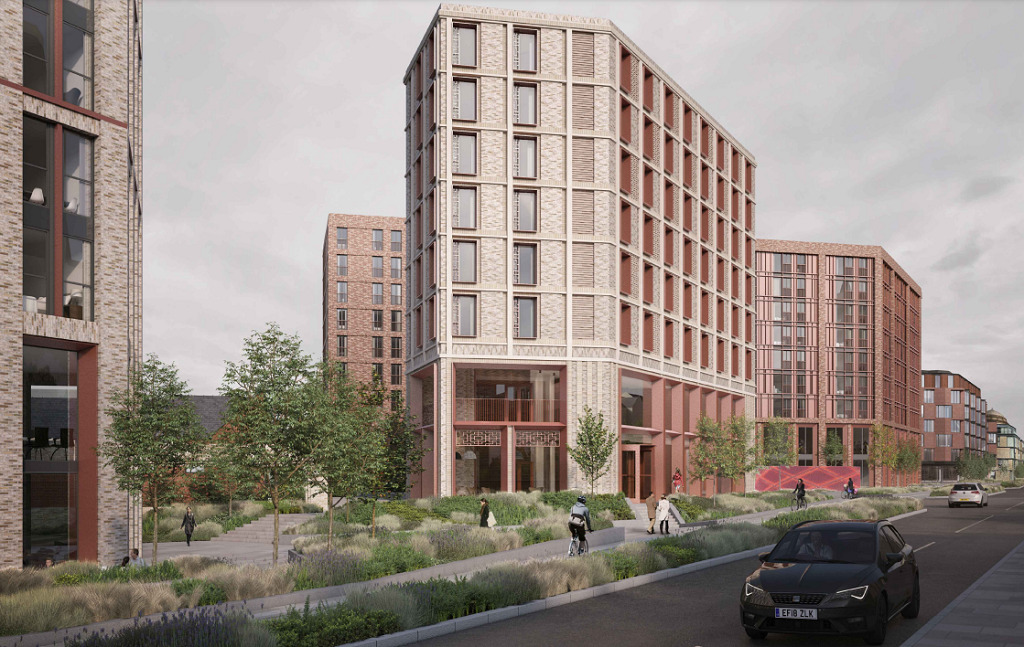Liverpool considers restrictions on Airbnbs
The city council is to consider toughening its stance on unregulated short-term lets such as Airbnb, calling for similar powers to Greater London.
In a motion put forward by Cllr Alan Tormey, the city council’s housing select committee is to consider whether to bring in special planning laws for short-term lets, similar to that used for HMOs.
While Cllr Tormey’s motion accepted that “innovation in how property can be rented has expanded the market and created opportunities for individuals to make a second income”, he raised issues around the growing number of short-term lets in the city, which has one of the leading tourism economies in the UK.
The motion said: “The growing market for ‘party houses’ can give local councils a headache. Houses rented only for a short time, with the aim of having a large party and leaving the resulting mess behind have the potential to damage both the landlords and the local area.”
Cllr Tormey’s motion flagged several concerns, including the impact on the local housing market, with fewer houses available for rent; the impact on licenced hotel and the bed & breakfast sector, and “the potential risks to visitors for example due to the lack of fire safety inspections”.
The motion calls on Mayor of Liverpool Joe Anderson to call on the Government to change planning laws to create a change of use classification for short-term holiday lets.
Anderson is also requested to ask for powers to enable the council to apply for an enforceable exception to the classification, which would allow use of residential premises as temporary sleeping accommodation for up to 90 days. This would bring Liverpool in line with Greater London, which has similar powers.
A licensing regime for short-term holiday lets is also proposed, which the motion argued would “improve safety and quality for visitors and to enhance management practises so as to benefit neighbours”.
The motion is due to be discussed by the council on Monday 18 November.
Liverpool’s tourism and hotel market remains one of the UK’s strongest, according to data released by consultant Colliers earlier this year.
Colliers’ Hotel Market Index ranks Liverpool as the UK’s top city for hotel revenue per room, with average annual growth of 7.3% over the last four years. The city’s supply is also the fifth highest in the country at 8,731, with a further 878 in the pipeline.
Liverpool’s occupancy rate of 81.8% last year is the fourth-strongest in the UK, behind only London, Edinburgh, and Oxford, while the city placed third behind Edinburgh and Glasgow in terms of the strongest markets for hotel performance in relation to development costs.





We have to be very careful here that a political sledgehammer doesn’t crack a vital nut.
First up, not long ago Liverpool was involved in wholesale clearance of streets due to under-population and its current housing pipeline, particularly in the city centre, shows a strong replacement stock in-coming. Population growth, whilst steady, is not stellar and the limited movement in rents and prices as evidenced by City Residential’s quarterly surveys suggests that the market remains in kilter.
Where is the evidence that Airbnb lets are diminishing housing stock to the point of shortage and rising rents? How many Airbnb lets are there per postal district? What percentage of the total housing stock is that in each area? What evidence is there that this has moved the dial on either rents or prices? Strong affordability suggests none, but either way surely such a key policy has to be firmly evidenced before a decision is made?
Similarly, how many incidences of anti-social behaviour related to Airbnb lets have there been? What is this in proportion to the number of nights let? Where have these incidences occurred?
It might be political populism to restrict Airbnb – and there’s a very clear argument in London and Dublin for it as a social and economic necessity – but the pressures exhibited in those cities just don’t exist in Liverpool. When they do, then we’ll be succeeding, but the bottom line is the city still needs sustained economic growth, and tourism is driving huge investment in physical regeneration, employing large numbers of working class tradesmen in the process, who are enjoying rising wages as a result.
Does a Labour authority really want to stop this in its tracks? Really?
Please think carefully, Liverpool City Council.
By Sceptical
These sites offer choice for Consumers and they will decide through reviews and feedback whether demand or quality is any good.
Councils shouldn’t be intervening to favour consumer choice
By Stuart wood
Presumably the council wants to licence such short term lets, thus finding yet another way of taxing the populus?
By D
Envy politics again by the hard left labour council, they are holding us back with their views and outdated opinions.
By Democrayee
No other city, that I know apart from London hv enacted these regulations. Our city main stay is tourism. Let’s not give into various pressure groups and disturb the economy of Liverpool. By all means carry our fire, health and safety checks and shut down non professional landlords. But let the business grow. 80% plus occupancy rates speaks volumes for our city..
By Shahid latif
This is not good. We want visitors to our city. We want people to shop and spend money here. It is vital for the local economy and will create more businesses and jobs for us, our children and our children’s children.
By Mary Mullarkey
This is just a terrible move. Our city does not have a housing crisis as London does. I run 2 airbnbs in the city very responsibly, as do thousands of other hosts. This notion that all airbnbs are “party houses” is ill-informed. Newspapers pick up these stories and run with them as they are sensationalist. I have run my airbnbs for over 3 years without a single incident of noise or complaints from the neighbours. I welcome legislation to make sure they are safe buy the 90 day rule would effectively cripple a large part of the cities tourism sector. It would not only put me out of a job but it all the people I employ. Finding work in Liverpool is already very difficult in this city and this sort of reckless legislation is just going to make things worse.
By N G